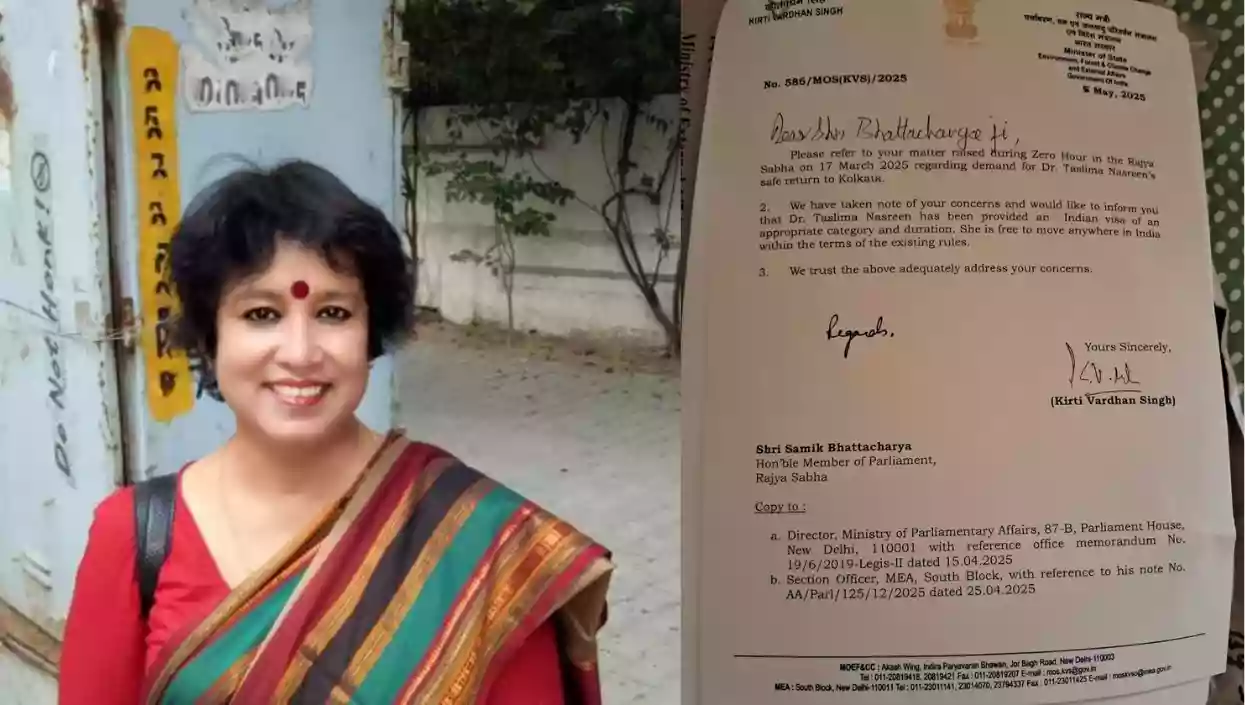.gif)
.gif)

The Indian government has clarified that exiled Bangladeshi writer Taslima Nasrin is free to travel anywhere within India. This assurance came in a letter from Minister of State for External Affairs, Kirti Vardhan Singh, addressed to Bengal BJP leader Samik Bhattacharya. The statement addresses concerns raised about Nasrin's movement within the country, particularly regarding her previous displacement from Kolkata.
The issue was brought to the forefront by Bharatiya Janata Party (BJP) member of Parliament (MP) Samik Bhattacharya, who, in March 2025, raised the matter in the Rajya Sabha. Bhattacharya advocated for Nasrin's return to Kolkata, emphasizing the city's significance in her life and work. He highlighted Nasrin's desire to reconnect with Kolkata, a city she considers vital to her creative process and where she wishes to continue her literary pursuits in Bengali.
Bhattacharya's statement in the Rajya Sabha also drew attention to Nasrin's allegations concerning restrictions on her artistic expression. Nasrin had claimed that the West Bengal government had suppressed the staging of a theatrical adaptation of her novel, 'Lajja'. She argued that her writings have been consistently targeted due to political appeasement and that her voice is being silenced under the guise of maintaining communal harmony.
However, the West Bengal police have refuted these allegations. They issued a statement denying that any official orders were ever issued to prevent the play from being performed. This divergence in viewpoints underscores the complexities surrounding Nasrin's situation and the varying interpretations of the events affecting her freedom of expression.
Samik Bhattacharya, in his parliamentary statement, specifically mentioned Nasrin's novel, 'Lajja,' which vividly portrays the atrocities endured by a Hindu family in Bangladesh in the aftermath of the Babri Masjid demolition in India. He also criticized the Communist Party of India (Marxist), which was in power in West Bengal when Nasrin was compelled to leave the city in 2007. This historical context adds weight to the current discussions about her freedom of movement and the political dimensions of her exile.
The Minister of State's letter serves to clarify the central government's stance, affirming that Taslima Nasrin faces no restrictions on her movement within India. This statement aims to reassure those who have expressed concerns about potential limitations on her ability to reside in or visit different parts of the country. It also seeks to address the broader issue of freedom of expression for writers and artists who have faced persecution or displacement.